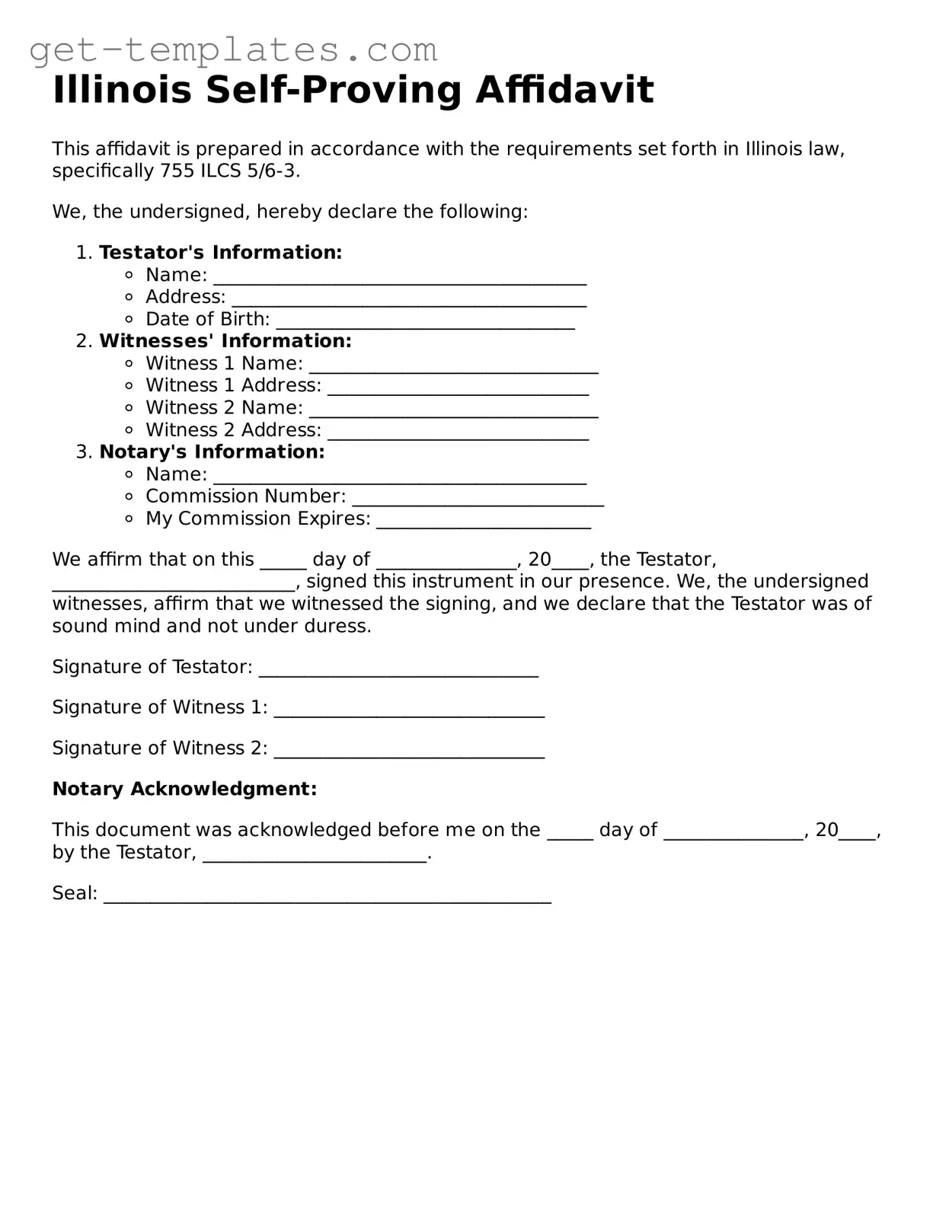Attorney-Approved Self-Proving Affidavit Document for Illinois
The Illinois Self-Proving Affidavit is a legal document that allows a testator's will to be validated without requiring the witnesses to appear in court. This form simplifies the probate process by providing a sworn statement from the witnesses affirming the authenticity of the will. Understanding its importance can help ensure that your wishes are honored after your passing.
Get Document Online

Attorney-Approved Self-Proving Affidavit Document for Illinois
Get Document Online
You’re halfway through — finish the form
Finish Self-Proving Affidavit online — edit, save, download made easy.
Get Document Online
or
⇓ PDF Form
